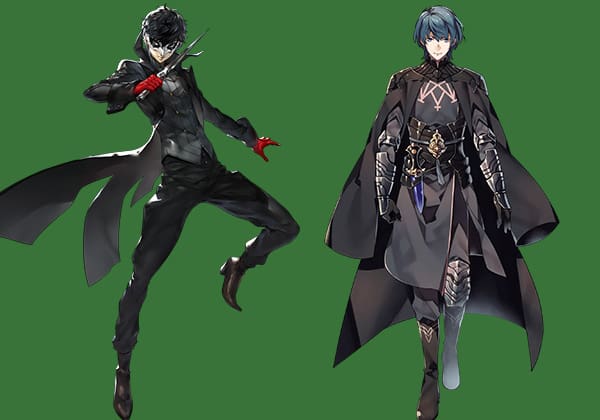There’s nowhere left to run. In a decisive moment, the masked man leaps across the mezzanine railing — stops to bid a cheeky “see ya” to his pursuers — and crashes through the stained-glass window into the moonlight.
The opening cutscene of Persona 5 introduces a daredevil protagonist oozing with mystery and charisma. Yet as the gameplay kicks off and I eagerly anticipate the sound of his voice again, the disappointing realisation creeps in: ah, he’s a silent protagonist.
The silent protagonist is a long-running trope in video games and often a polarising topic amongst the fanbase. Touted as a means of self-insertion, the silent protagonist allows the player to inject their own personality and emotions into a tabula rasa character, usually through dialogue options. However, there are certain cases where the silent protagonist can be a direct hindrance to immersion and do a disservice to a game’s narrative.
In Persona 5, you play as Joker, leader of a vigilante group of high schoolers who fight societal injustices in a supernatural realm formed from humanity’s distorted desires. Joker cannot function as a player surrogate because he is already a character with a defined appearance, age, gender, and ethnicity. Already there is a stark dissonance between me and the protagonist. For example, Joker is explicitly written as heterosexual, which becomes particularly uncomfortable in scenes where I am forced to be one of the bros and hit on chicks or call up a maid service. In a game that presents such a personalised narrative experience, it’s bizarre that you have the option to date multiple adult women as a minor, yet not a single man.
When other characters praise Joker as a reliable, kind-hearted leader, this comes off as contrived given that his available dialogue is never more than a short sentence. Characters will be monologuing their tragic life story and you can only reply with a generic statement accompanied by an expressionless animation, which somehow touches their hearts. In scenes with voice-acting, the silence when the protagonist supposedly speaks is especially awkward. We relate to a character through their emotions, motivations, and internal struggles rather than their superficial characteristics, yet we are only given the outer shell and are forced to fill in many of the blanks of Joker’s personality.
In Fire Emblem: Three Houses, you play as Byleth, the mysterious mercenary-turned-professor who leads their students through a devastating war. Although the player is conferred slightly more freedom with choice of Byleth’s gender presentation and a few same-sex romance options, the game suffers from similar issues. Byleth’s dialogue is usually stilted and bland — their characterisation is especially unconvincing when their students worship them as a Messianic figure despite being an emotionless avatar. Furthermore, there are instances of the player being presented with a choice that seem to signal a branching route, yet your decision is vetoed anyway and you are forced into the same outcome. This illusion of choice feels especially jarring in a game where strategic decisions matter significantly in combat, as one wrong move can result in the irreversible deaths of your allies with whom you have spent time cultivating emotional bonds (unless you’re a casual like me and don’t have permadeath enabled).
The problem with silent protagonists in Japanese RPGs like Persona and Three Houses is that the linearity of the storyline inherently denies the player agency and hence the ability to self-insert. There seems to be more of an emphasis on building interpersonal relationships with a cast of complex and endearing characters, revealing of the East Asian collectivist mentality. On the contrary, Western RPGs tend to champion individualism and self-expression by allowing customisation of the player’s appearance, role, and gear. Dialogue choices are usually more substantial and can have a direct causal effect on the story.
Both types of games cater to different intentions. Linearity is comforting in that you can sit back and enjoy the narrative ride, whilst a non-linear open world allows greater freedom for exploration. However, silent protagonists function a lot more successfully in games that allow true freedom of choice and expression, like in Skyrim. The player is more able to seamlessly roleplay a character that they themselves have tailored in a world in which they can meaningfully exert their own agency, thereby enabling fantasy fulfilment through this virtual extension of the self.
When reading novels or watching movies, a fully fleshed-out main character does anything but hinder immersion. The common criticism that voiced protagonists are too obnoxious is more indicative of poor writing than of an inherent issue with them speaking. When I play Hades, the story truly comes alive when witty protagonist Zagreus banters with the other inhabitants of the Underworld. When I play Yakuza 0, I can root for the dual protagonists because of their indefatigable drive while navigating Japan’s criminal underbelly. The reason I sink hundreds of hours into games is because I can’t resist the pull of a well-written emotional storyline. Persona 5 and Three Houses are fantastic games that I adore to death, but their protagonists deserve a voice – we should give it to them.





